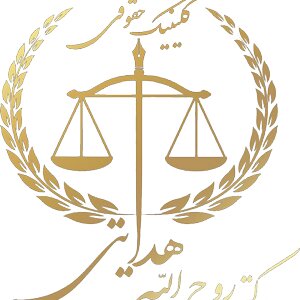Best Lawsuits & Disputes Lawyers in Mashhad
Share your needs with us, get contacted by law firms.
Free. Takes 2 min.
List of the best lawyers in Mashhad, Iran
About Lawsuits & Disputes Law in Mashhad, Iran
Mashhad, as one of the largest cities in Iran, operates under a legal framework guided by the laws of the Islamic Republic of Iran. The handling of lawsuits and legal disputes in Mashhad covers a broad range of issues such as civil disputes, commercial conflicts, family matters, property disagreements, contract enforcement, and governmental claims. The judicial system in Mashhad includes special courts such as civil courts, criminal courts, public courts, and dispute resolution councils, all structured according to Iranian law. Procedural and substantive laws, largely based on Islamic law and the Civil Code of Iran, govern how disputes are resolved, how cases are filed, and what remedies are available to the parties involved.
Why You May Need a Lawyer
Engaging a lawyer is highly recommended for anyone involved in a dispute or lawsuit in Mashhad. The Iranian legal system is complex and navigating it without professional guidance can be challenging. Common scenarios where legal assistance is essential include:
- Contract disputes between individuals or businesses
- Property and real estate disagreements
- Family law matters such as divorce, custody, or inheritance
- Employment and labor disputes
- Debt recovery and collection cases
- Defamation or personal injury claims
- Consumer complaints and business-to-business conflicts
A lawyer can help ensure your rights are protected, filing and responding to claims on your behalf, and representing you before the courts or dispute resolution councils. They also provide invaluable advice about legal procedures, documentation, and negotiation, helping to achieve the best possible outcome.
Local Laws Overview
Legal disputes in Mashhad fall under the jurisdiction of the general courts of Iran, with certain cases overseen by specialized branches. Some key aspects of local laws relevant to lawsuits and disputes in Mashhad include:
- Islamic Law Principles: The legal system largely draws from the principles of Islamic jurisprudence integrated into the Civil Code and other statutes.
- The Civil Code: Governs property rights, contracts, family law, and inheritance matters.
- The Commercial Code: Applies to business and commercial relationships and transactions.
- Dispute Resolution Councils: Local councils aim to resolve minor civil disputes and mediate conflicts outside formal courts. These councils are widespread throughout Mashhad for convenience and accessibility.
- Filing Procedures: Claims are typically filed at the appropriate court or council following formal written procedures, including submission of evidence and legal arguments in Farsi.
- Limitation Periods: Legal claims must be brought within specified timeframes determined by the type of dispute.
- Appeals Process: Decisions from lower courts and councils can often be appealed, but strict deadlines and requirements apply.
Understanding these laws and procedural rules is vital for anyone involved in a lawsuit or dispute in Mashhad, as errors may result in losing your legal rights or weakening your case.
Frequently Asked Questions
What types of cases do local courts in Mashhad handle?
Local courts handle civil, criminal, family, commercial, and administrative cases. Civil courts manage most lawsuits involving contracts, property, and personal injury, while family courts deal with marriage, divorce, and inheritance disputes.
What is the Dispute Resolution Council, and when is it used?
Dispute Resolution Councils are local institutions designed to mediate and resolve small-value or less complex civil disputes, aiming to avoid lengthy court procedures. They often handle matters like tenant-landlord issues, minor financial claims, and local disagreements.
Will I need to appear in court personally?
In many cases, your physical presence may be required, especially in criminal, family, or certain civil matters. However, an attorney can represent you for some types of disputes, or in preliminary hearings.
Do I need to submit any documents for my case?
Yes, proper documentation is crucial. Typical requirements include your national identification card, relevant contracts or agreements, written statements, witness statements, and any other supporting evidence tailored to your specific dispute.
Is it possible to settle a dispute without going to court?
Yes, parties are encouraged to settle disputes through negotiation, mediation, or with the assistance of a lawyer outside of court. Dispute Resolution Councils provide an official forum for mediation, and private settlement agreements are also recognized by the law.
How long does the legal process usually take?
The duration depends on the complexity of the dispute, the type of court or council, and whether appeals are filed. Simple cases in Dispute Resolution Councils may resolve within weeks, while complex civil disputes or appeals may take several months or longer.
What are the legal fees for filing a lawsuit?
Legal fees in Mashhad include court filing charges, which vary by case type and claim value, plus any attorney fees if you hire representation. Some fees are regulated by law, while attorney rates can differ based on experience and complexity.
Can a foreigner file a lawsuit or defend a claim in Mashhad?
Yes, foreigners have the right to initiate or defend claims in Mashhad courts. It is strongly advised to engage a local attorney familiar with Iranian legal procedures and language requirements.
Are judgments from Mashhad courts enforceable elsewhere in Iran?
Yes, judgments issued by Mashhad courts are enforceable throughout Iran under national law, following relevant enforcement and appeal procedures.
What happens if I disagree with a court's decision?
If you believe there was an error in your case, you may appeal the decision within a limited timeframe. The appeals process involves submitting a formal petition and additional documentation to the relevant appellate court.
Additional Resources
If you need further guidance or official information about lawsuits and disputes in Mashhad, consider contacting the following resources:
- Judiciary of the Islamic Republic of Iran - Local Mashhad Courts
- Dispute Resolution Councils in Mashhad
- Khorasan Razavi Bar Association
- Legal Aid Office (Komiteye Emdad)
- Mashhad Chamber of Commerce, Industries, Mines, and Agriculture (for business-related disputes)
These organizations can provide information about courts, procedures, and legal representation; some also offer free or subsidized legal aid to qualifying individuals.
Next Steps
If you are facing a lawsuit or legal dispute in Mashhad, Iran, follow these recommended steps:
- Collect all relevant documents and information related to your case.
- Consult with a qualified attorney familiar with Mashhad's local practices and Iranian law. Seek recommendations, or contact the local Bar Association for referrals.
- If your dispute is minor, explore mediation or resolution through a Dispute Resolution Council before proceeding to court.
- Be mindful of deadlines, especially for filing claims or submitting appeals.
- Prepare for all legal appointments and hearings by gathering evidence and reviewing your case with your lawyer.
- Contact relevant governmental offices or legal aid organizations for additional information or support if needed.
Navigating lawsuits and disputes in Mashhad can be complex, but with the right legal assistance and an understanding of local procedures, you can protect your rights and interests effectively.
Lawzana helps you find the best lawyers and law firms in Mashhad through a curated and pre-screened list of qualified legal professionals. Our platform offers rankings and detailed profiles of attorneys and law firms, allowing you to compare based on practice areas, including Lawsuits & Disputes, experience, and client feedback.
Each profile includes a description of the firm's areas of practice, client reviews, team members and partners, year of establishment, spoken languages, office locations, contact information, social media presence, and any published articles or resources. Most firms on our platform speak English and are experienced in both local and international legal matters.
Get a quote from top-rated law firms in Mashhad, Iran — quickly, securely, and without unnecessary hassle.
Disclaimer:
The information provided on this page is for general informational purposes only and does not constitute legal advice. While we strive to ensure the accuracy and relevance of the content, legal information may change over time, and interpretations of the law can vary. You should always consult with a qualified legal professional for advice specific to your situation.
We disclaim all liability for actions taken or not taken based on the content of this page. If you believe any information is incorrect or outdated, please contact us, and we will review and update it where appropriate.
Browse lawsuits & disputes law firms by service in Mashhad, Iran
Mashhad, Iran Attorneys in related practice areas.









